Zika: US issues fresh guidance amid birth defect fears
- Published
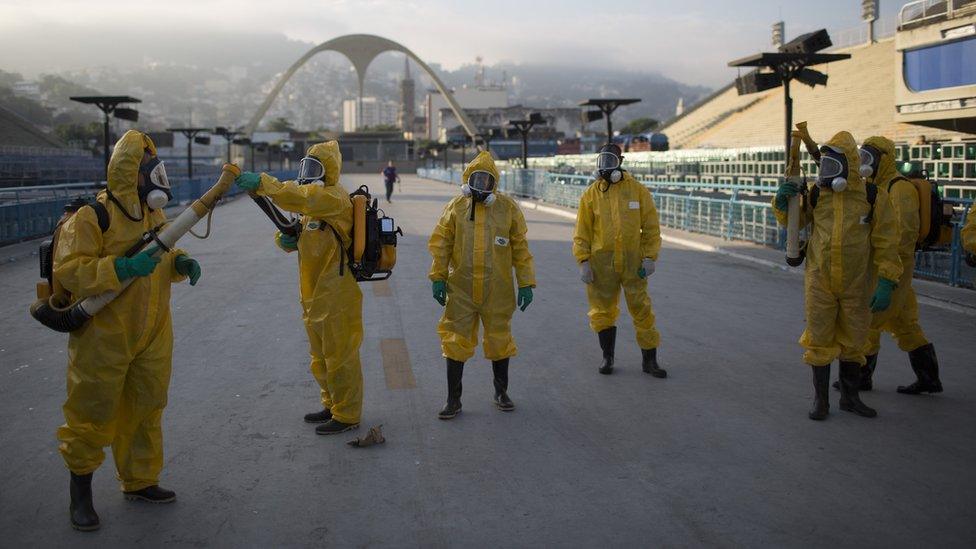
Health authorities in Brazil have been fumigating a stadium in Rio
US health officials have issued new guidance to deal with the Zika virus, which is feared to cause birth defects.
Brazil has seen a surge in babies born with abnormally small heads, a condition known as microcephaly.
The World Health Organization (WHO) has warned the mosquito-borne virus could spread across the Americas.
US doctors are being advised to closely monitor ultrasounds of pregnant women who have travelled to areas where Zika has been transmitted.
The guidance, from the US Centers for Disease Control and Prevention (CDC), external, says babies born with microcephaly to mothers exposed to Zika should be tested for the virus.
No treatment or vaccine is available.
Pregnant Britons warned about Zika areas
There have not been any cases of Zika contracted from mosquitoes on the US mainland, but the Aedes aegypti type that spreads it is found in the country.
The US territory of Puerto Rico reported 18 new cases of the virus on Tuesday, although none were pregnant women.
Authorities in the state of Arkansas also said a person who recently travelled out of the US had tested positive for Zika.

More on the Zika virus:
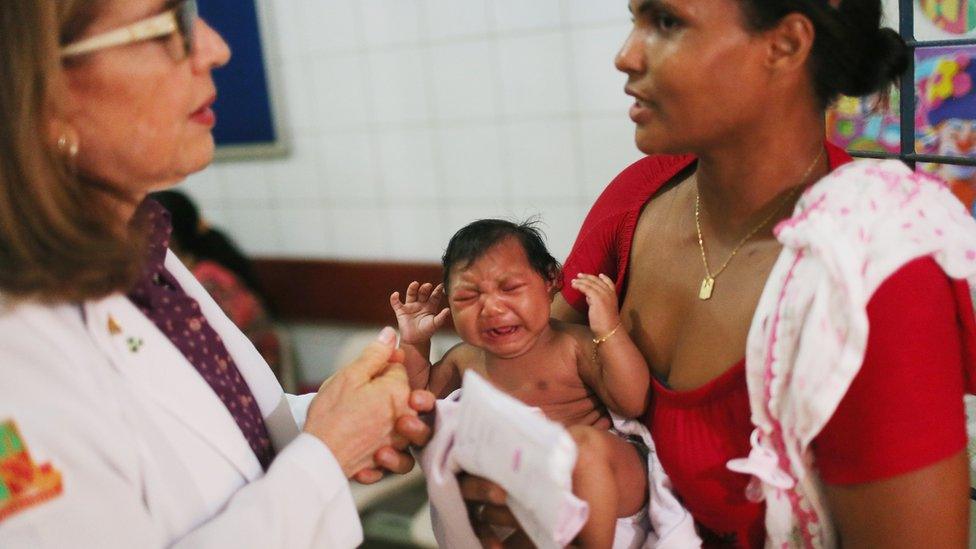
The Zika virus has been linked to infant microcephaly, which can hamper brain development

Meanwhile Brazilian authorities have been fumigating the Sambadrome stadium in Rio de Janeiro, due to host the city's famous carnival next month.
The US and other countries advise pregnant women to reconsider travelling to Brazil, which hosts the Olympics later this year, and other Zika-hit countries.
Brazil's government says it will deploy 220,000 soldiers in its fight against mosquitoes spreading the virus.
The troops will be dispatched next month to hand out leaflets and give advice on how to eradicate mosquito breeding grounds.
Brazilian Health Minister Marcelo Castro said the spread of Zika was one of the greatest public health crises in his country's history, warning Brazil was already "losing badly" in its battle.

What is Zika virus?
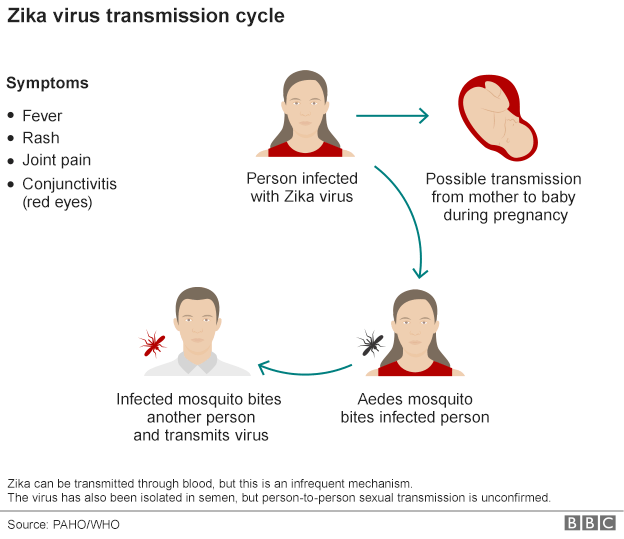
Spread by the Aedes aegypti mosquito, which also carries dengue fever and yellow fever
First discovered in Africa in the 1940s but is now spreading in Latin America
Scientists say there is growing evidence of a link to microcephaly, that leads to babies being born with small heads
Can lead to fever and a rash but most people show no symptoms, and there is no known cure
Only way to fight Zika is to clear stagnant water where mosquitoes breed, and protect against mosquito bites

Symptoms of Zika include mild fever, conjunctivitis and headache and the virus has already been found in 21 countries in the Caribbean, North and South America.
There have been 3,893 reported cases of microcephaly in Brazilian babies since October compared with the previous annual average of just 160 cases.
While a causal link between a Zika infection during pregnancy and microcephaly has not been definitively proven, the WHO said evidence suggesting a connection was "extremely worrisome".


Has the travel advice to stay away from South America if you are pregnant or trying to start a family put you off visiting the region? Have you cancelled any travel plans? Email your thoughts to haveyoursay@bbc.co.uk, external
If you are willing to speak further to a BBC journalist, please include a contact telephone number, or you can WhatsApp us on +44 7525 900971.

- Published25 January 2016
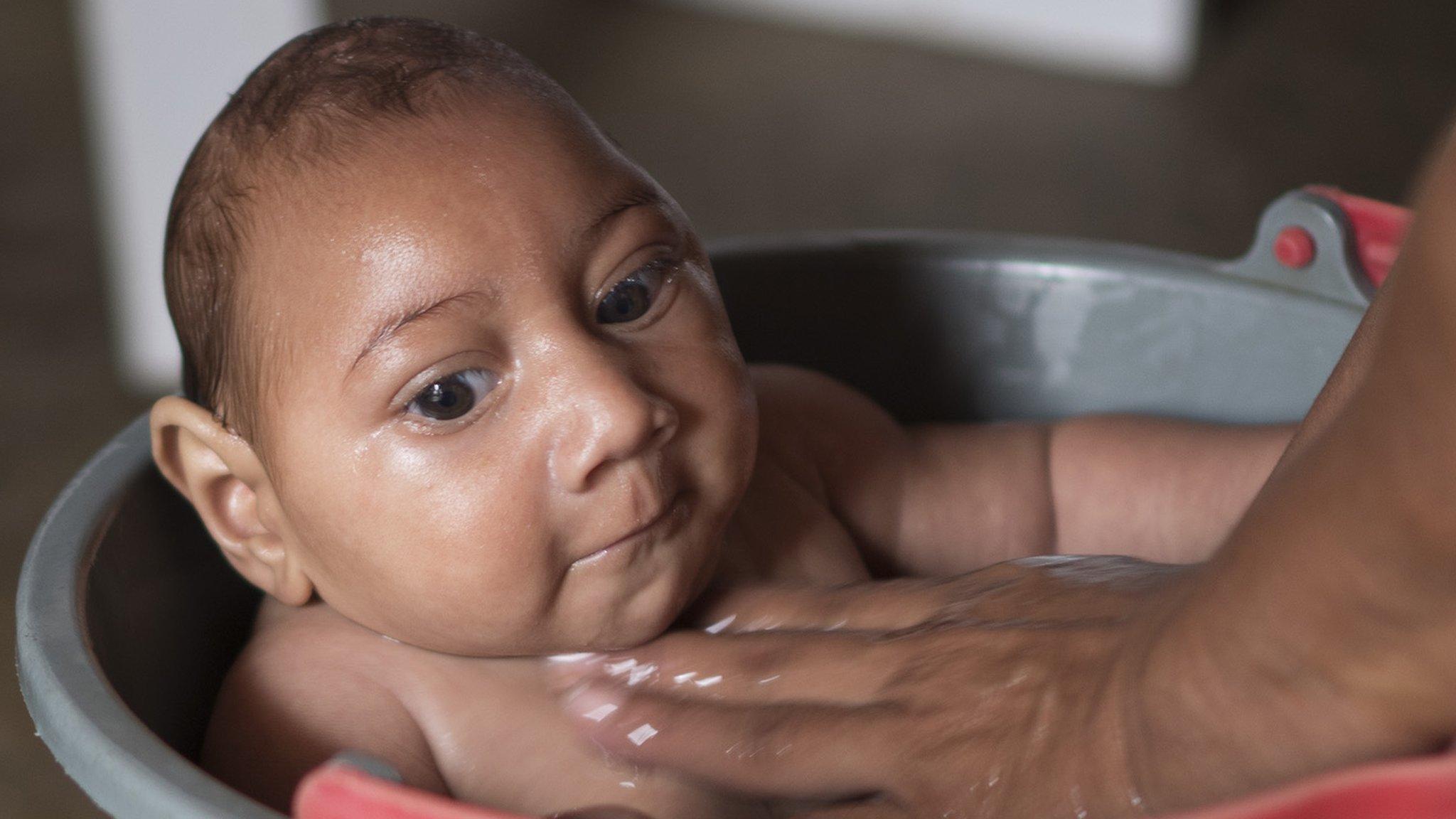
- Published24 January 2016
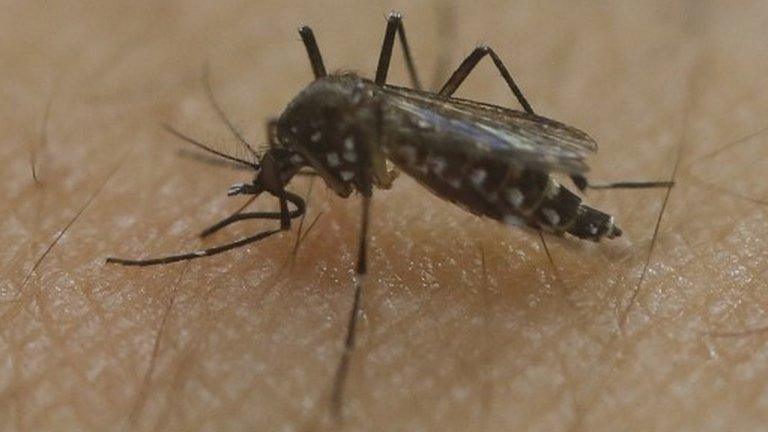
- Published23 January 2016
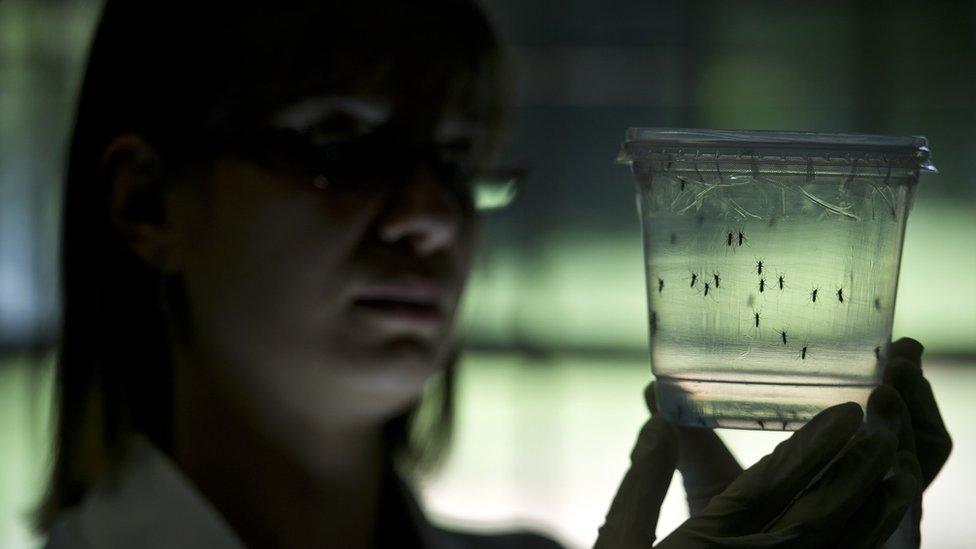
- Published23 January 2016
